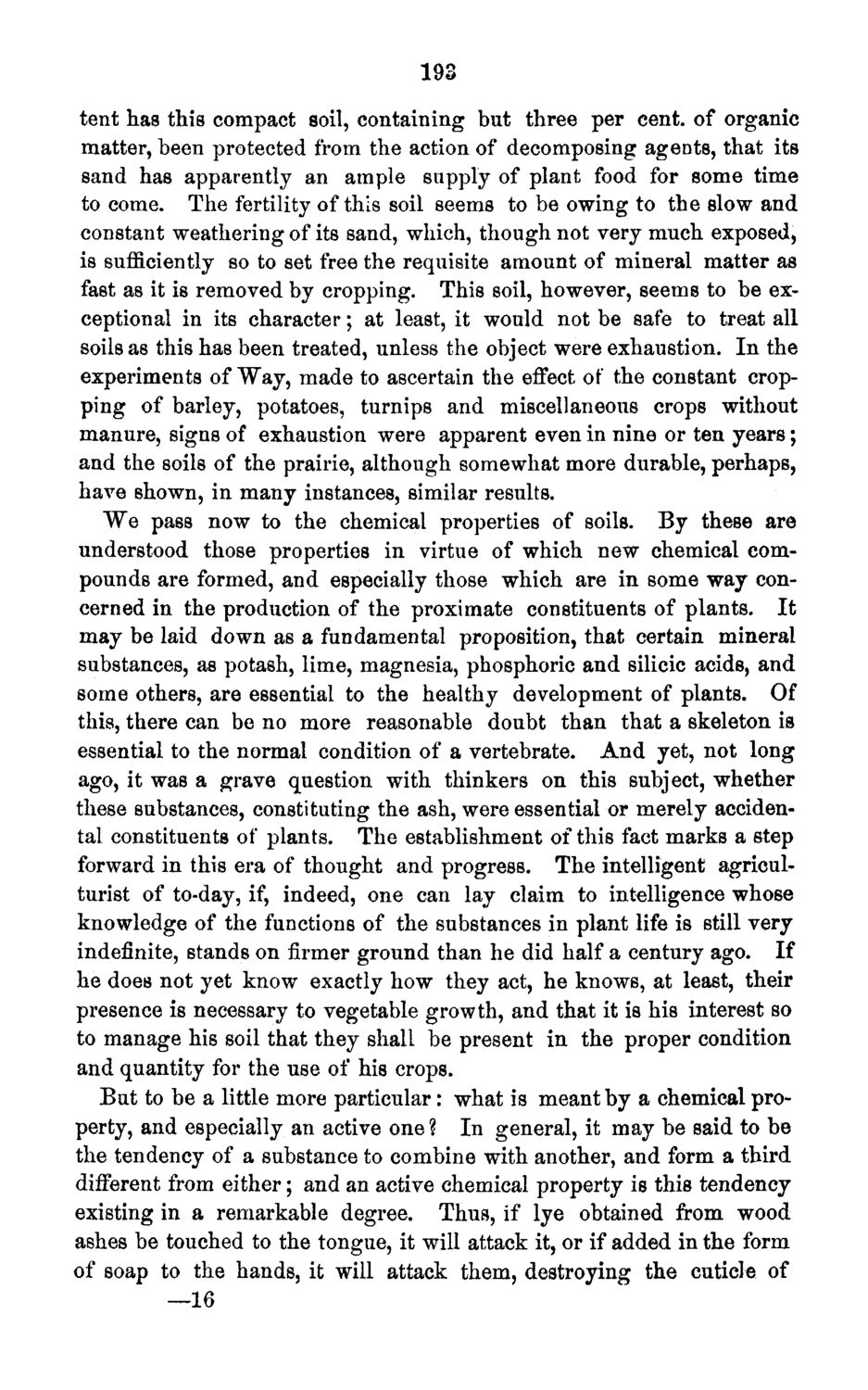| |
| |
Caption: Board of Trustees Minutes - 1871
This is a reduced-resolution page image for fast online browsing.

EXTRACTED TEXT FROM PAGE:
193 tent has this compact soil, containing but three per cent, of organic matter, been protected from the action of decomposing agents, that its sand has apparently an ample supply of plant food for some time to come. The fertility of this soil seems to be owing to the slow and constant weathering of its sand, which, though not very much exposed, is sufficiently so to set free the requisite amount of mineral matter as fast as it is removed by cropping. This soil, however, seems to be exceptional in its character; at least, it would not be safe to treat all soils as this has been treated, unless the object were exhaustion. In the experiments of Way, made to ascertain the effect of the constant cropping of barley, potatoes, turnips and miscellaneous crops without manure, signs of exhaustion were apparent even in nine or ten years; and the soils of the prairie, although somewhat more durable, perhaps, have shown, in many instances, similar results. We pass now to the chemical properties of soils. By these are understood those properties in virtue of which new chemical compounds are formed, and especially those which are in some way concerned in the production of the proximate constituents of plants. It may be laid down as a fundamental proposition, that certain mineral substances, as potash, lime, magnesia, phosphoric and silicic acids, and some others, are essential to the healthy development of plants. Of this, there can be no more reasonable doubt than that a skeleton is essential to the normal condition of a vertebrate. And yet, not long ago, it was a grave question with thinkers on this subject, whether these substances, constituting the ash, were essential or merely accidental constituents of plants. The establishment of this fact marks a step forward in this era of thought and progress. The intelligent agriculturist of to-day, if, indeed, one can lay claim to intelligence whose knowledge of the functions of the substances in plant life is still very indefinite, stands on firmer ground than he did half a century ago. If he does not yet know exactly how they act, he knows, at least, their presence is necessary to vegetable growth, and that it is his interest so to manage his soil that they shall be present in the proper condition and quantity for the use of his crops. But to be a little more particular: what is meant by a chemical property, and especially an active one ? In general, it may be said to be the tendency of a substance to combine with another, and form a third different from either; and an active chemical property is this tendency existing in a remarkable degree. Thus, if lye obtained from wood ashes be touched to the tongue, it will attack it, or if added in the form of soap to the hands, it will attack them, destroying the cuticle of —16
| |